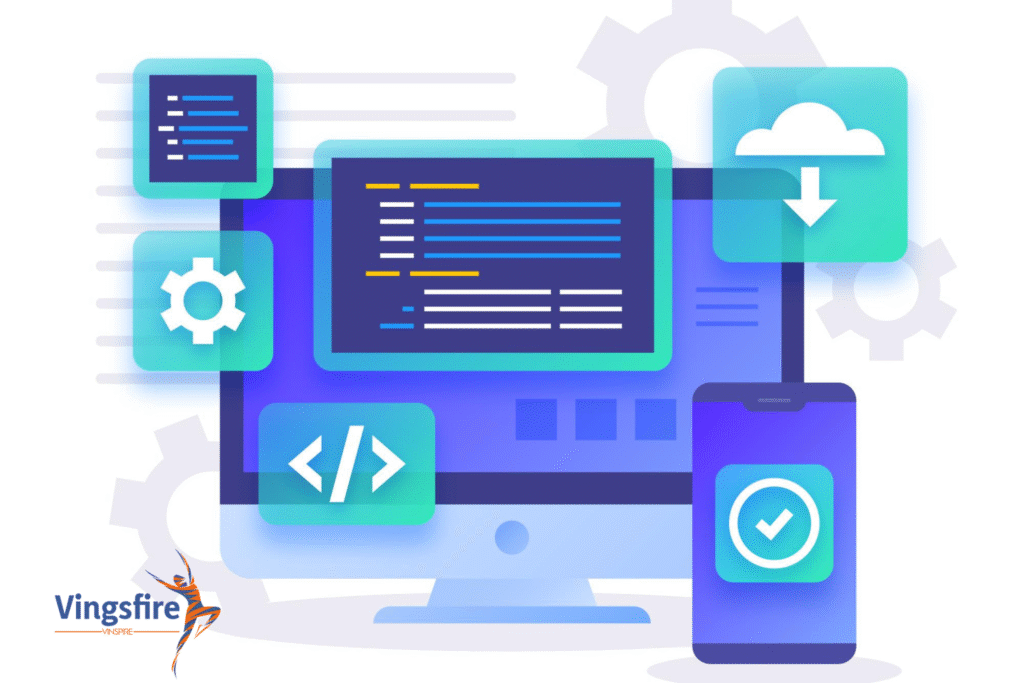
In today’s fast-paced digital world, static websites are no longer enough. Businesses need dynamic website development to create interactive, personalized, and scalable online experiences. Unlike traditional static sites, dynamic website development leverages databases, server-side scripting, and real-time updates to deliver content that adapts to user behavior.
At Vingsfire, we specialize in Database-Driven Website Development, helping businesses achieve:
✅ 300% faster load times with optimized databases
✅ Personalized user experiences through AI-driven content
✅ Seamless third-party integrations (CRM, payment gateways, APIs)
✅ Higher conversion rates with real-time updates
This 2,000-word guide will cover:
- What Database-Driven Website Development is (and why it’s essential)
- Key technologies powering dynamic websites
- How dynamic sites outperform static ones
- Real-world use cases and success stories
- Choosing the right Database-Driven Website Development partner
What is Dynamic Website Development?
Dynamic website development refers to building websites that generate content in real-time based on user interactions, database queries, and server-side processing. Unlike static HTML sites, dynamic websites use:
- Server-side languages (PHP, Python, Node.js)
- Databases (MySQL, MongoDB)
- APIs (REST, GraphQL)
- Content Management Systems (CMS) like WordPress (headless mode)
Why Businesses Need Dynamic Websites
- Personalization – Show tailored content based on user location, behavior, or preferences.
- Easier Updates – Non-technical teams can modify content via CMS dashboards.
- Scalability – Handle thousands of users without performance drops.
- Integration Capabilities – Connect with CRM, ERP, and marketing tools.
“Static websites are like printed brochures—dynamic websites are living, evolving digital storefronts.”
Key Technologies in Dynamic Website Development
1. Backend Programming Languages
- PHP (Laravel, Symfony) – Best for CMS-driven sites
- Python (Django, Flask) – Ideal for data-heavy platforms
- Node.js – Perfect for real-time applications (chat, live updates)
2. Database Systems
- MySQL – Relational database for structured data
- MongoDB – NoSQL for flexible, scalable data
- Firebase – Real-time database for apps
3. Frontend Frameworks
- React.js / Vue.js – For interactive user interfaces
- Next.js – Server-side rendering for SEO-friendly dynamic sites
4. APIs & Integrations
- Payment Gateways (Stripe, PayPal)
- CRM Systems (HubSpot, Salesforce)
- Marketing Automation (Mailchimp, ActiveCampaign)
Dynamic vs. Static Websites: Key Differences
| Feature | Static Websites | Dynamic Websites |
|---|---|---|
| Content Updates | Manual HTML edits | CMS-controlled |
| Personalization | None | User-specific content |
| Performance | Fast (pre-built pages) | Optimized via caching |
| Scalability | Limited | Handles high traffic |
| Use Cases | Brochure sites | E-commerce, portals, SaaS |
Example: A static restaurant menu vs. a dynamic menu that changes based on time of day, user dietary preferences, or seasonal availability.
Real-World Applications of Dynamic Website Development
1. E-Commerce Stores
- Real-time inventory updates
- Personalized product recommendations
- Dynamic pricing (discounts based on user history)
2. Membership Portals
- User-specific dashboards
- Subscription management
- Gated content access
3. News & Media Sites
- Auto-updating feeds
- Comment systems
- Trending topic algorithms
“Netflix’s recommendation engine is a prime example of Database-Driven Website Development at scale.”
How to Choose a Dynamic Website Development Partner
When selecting a Database-Driven Website Development agency, look for:
✔ Full-stack expertise (frontend + backend)
✔ Proven case studies (ask for examples)
✔ SEO optimization (dynamic sites must still rank)
✔ Ongoing support & maintenance
Why Vingsfire?
Our dynamic website development services include:
- Custom CMS solutions
- API integrations
- Real-time data dashboards
- 24/7 performance monitoring
The Future of Dynamic Website Development
- AI-Powered Personalization – Chatbots, predictive content
- Voice Search Optimization – Dynamic content for Alexa/Google
- Web3 Integration – Blockchain-based user authentication
Conclusion: Build a Smarter Website
Dynamic website development isn’t just a trend—it’s a necessity for businesses that want to engage users, automate processes, and scale effortlessly.
🚀 Ready to transform your website?
Contact Vingsfire for a free dynamic website development consultation today!
